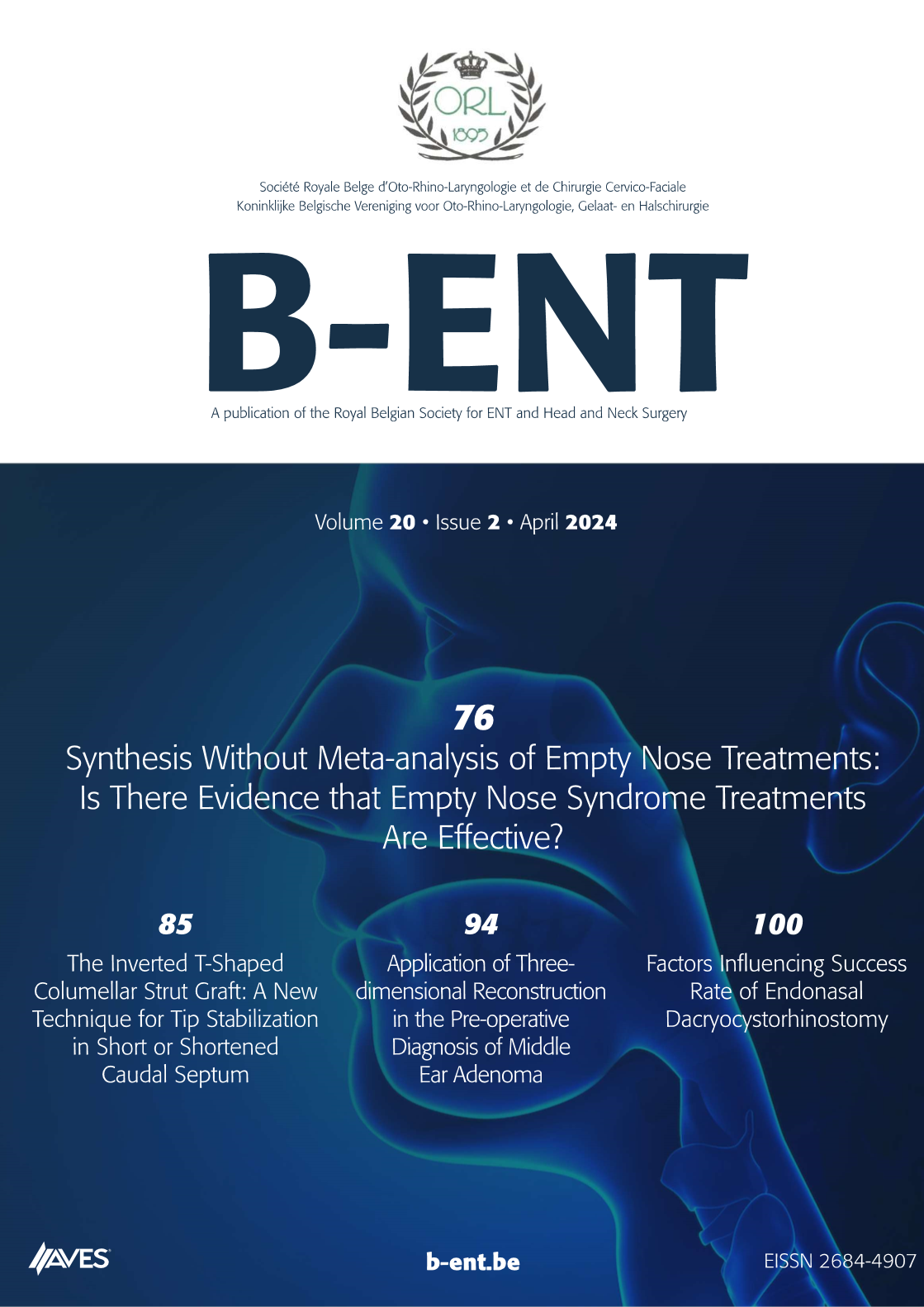Acoustic rhinometry to evaluate plastic surgery results of the nasal septum. Objective: In this study, acoustic rhinometry was used in the preoperative and postoperative evaluation of 16 patients undergoing surgery for nasal obstruction.
Methodology: The parameters evaluated prior to and subsequent to the operation were the diameter of the nasal cavity at its narrowest point, and the total volume of the nasal cavity.
Results: This method accurately showed changes in the dimensions of the nasal cavity following surgery. As shown by acoustic rhinometry, the change in the mean minimal cross-sectional area of the nasal cavity was 67%. Similarly, the augmentation of the mean total volume of the nasal cavity was 24.15%. The change in the dimensions of the nasal cavity paralleled the improvement in clinical symptoms.
Conclusion: Acoustic rhinometry can accurately measure the dimensions of the nasal cavity, especially at the front part. It can also be used to assess the efficiency of treatment in cases of nasal obstruction, especially plastic surgery of the nasal septum.



.png)
